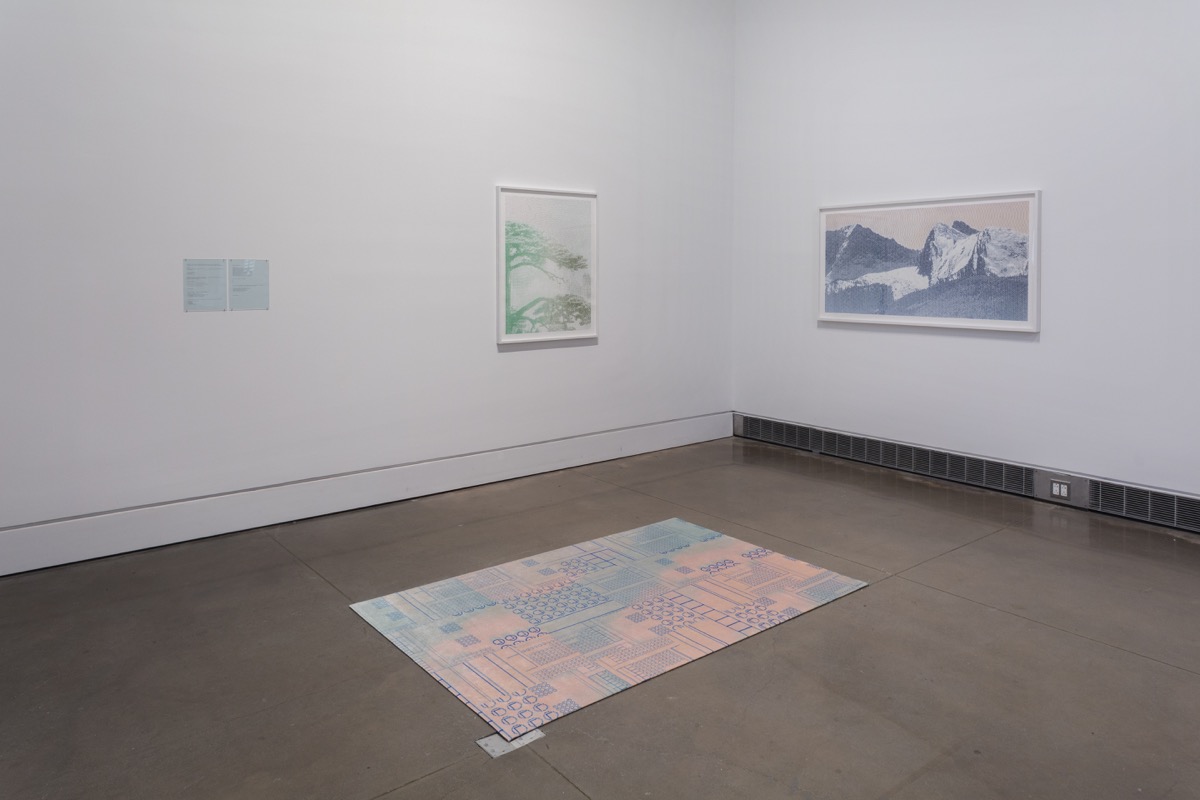
Jesse Chun, Landscape #5, 2013. Pigment print. Landscape #10, 2014. Pigment print. Primary Language ( ), 2018. Custom textile rug and two printed 8.5” x 11" sheets. Courtesy of the artist.
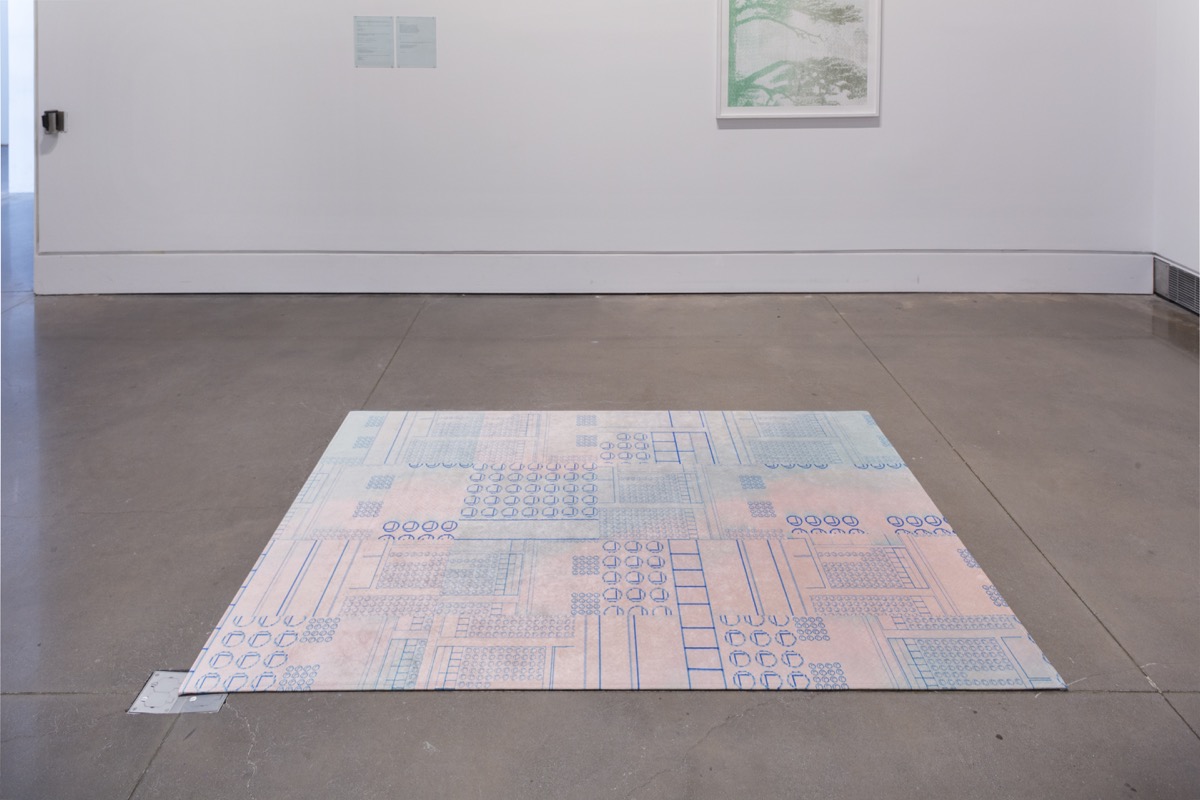
Jesse Chun, Landscape #5, 2013. Pigment print. Landscape #10, 2014. Pigment print. Primary Language ( ), 2018. Custom textile rug and two printed 8.5” x 11" sheets. Courtesy of the artist.
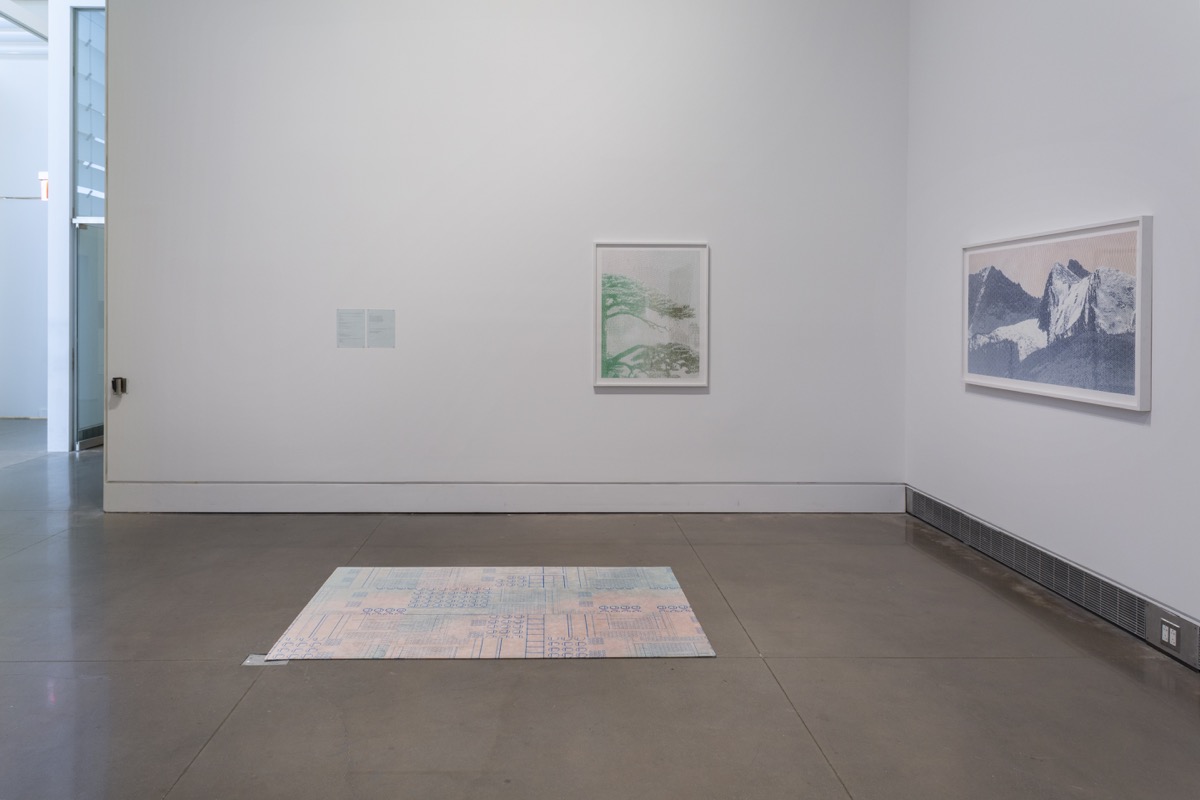
Jesse Chun, Landscape #5, 2013. Pigment print. Landscape #10, 2014. Pigment print. Primary Language ( ), 2018. Custom textile rug and two printed 8.5” x 11" sheets. Courtesy of the artist.
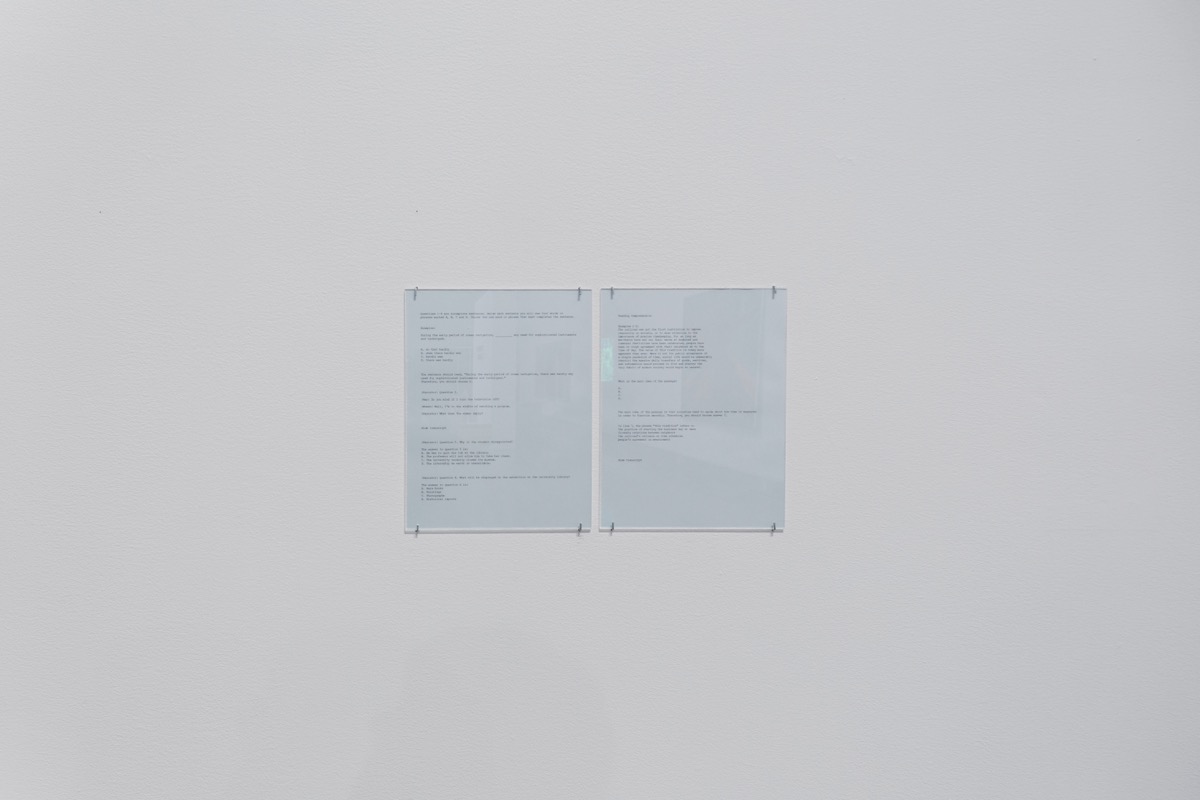
Jesse Chun, Landscape #5, 2013. Pigment print. Landscape #10, 2014. Pigment print. Primary Language ( ), 2018. Custom textile rug and two printed 8.5” x 11" sheets. Courtesy of the artist.

Jesse Chun, Landscape #5, 2013. Pigment print. Landscape #10, 2014. Pigment print. Primary Language ( ), 2018. Custom textile rug and two printed 8.5” x 11" sheets. Courtesy of the artist.
| Jesse Chun |
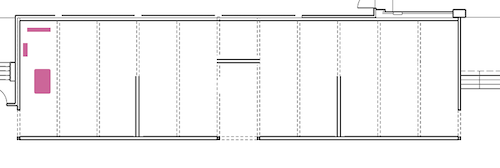 |
|
|
 |
My work considers conditions of language generated by bureaucracy, migration, pedagogy and cultural memory. I attempt to translate and unlearn the ideological machinery of language through redaction, abstraction and poetics. I arrived at this through examining my own transcultural relationship with language, as well as researching found documents and information to uncover the layers of meaning embedded in their context, function and physicality. In QI 2018, my Landscapes are made from scanning the watermarked details of various passport pages, and digitally manipulating them to transform them into large-scale landscapes. Devoid of national markers and travelers’ data they become portraits of a ubiquitous and unbound nature. The textiles from Primary Language are made from repeating, layering and aestheticizing patterns of electronic answer sheets for standardized English tests, reclaiming the bureaucratic patterns into the ornamental. Both works attempt to subvert the readability of the hegemonic data that categorizes people. |
| In my practice at large, I also actively investigate the linguistic elements of language. I am often working with found texts to translate them into moving image, concrete poetry and sound. It is important for me to think about both the material and immaterial elements of language. |
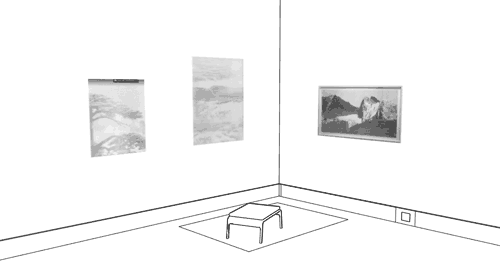 |
| Can you talk about the politics of transcultural identity and why language is such an important arena to address? |
Can you talk about the politics of transcultural identity and why language is such an important arena to address? |
I have lived in Seoul, Hong Kong, New York and Toronto. Currently in New York, I live and work in both Brooklyn and Long Island City. This fragmented relationship to place has always made me acutely aware that language is not neutral; I have witnessed from multiple places that Western hegemony continues to affect both our global communication and local narrative. Increasingly with globalization and current geopolitical conflicts that affect mobility, more people are navigating among cultures, places, and languages. I think it’s necessary to consider a more multilingual perspective on language to reflect that interstitial space, and our current time. |
|
What does Volumes mean to you and your work? |
an anthology of untranslatability: collected and uncollected documents (volume I, II, III) |
an anthology of untranslatability: collected and uncollected documents (volume I, II, III) |
What does Volumes mean to you and your work? |
| prev |
Jesse Chun (b. 1984, Seoul, South Korea) received an MFA from the School of Visual Arts (2014) and a BFA from Parsons School of Design at The New School (2006). She has exhibited her work in solo and group exhibitions at select venues including the Drawing Center New York, NY (2018); BAM Brooklyn, NY (2018); Baxter St at CCNY, Brooklyn, NY (2018); BRIC Brooklyn, NY (2018); the Bronx Museum of the Arts Bronx, NY (2017); Spencer Brownstone Gallery New York, NY (2016); Fridman Gallery, New York, NY (2015); ArtCenter/SouthFlorida, Miami, FL (2017); Space Debris Art, Istanbul, TR (2014); among others. Chun has been awarded various fellowships and commissions including Triple Canopy (2018), the Drawing Center Open Sessions (2018), the LES Printshop Keyholder Residency (2017), the Bronx Museum Artists in the Marketplace (2017), and BRIC Media Arts Fellowship (2017), and solo public commission for the Brooklyn Bridge Park (2017) in New York. Chun's work has been reviewed in Artforum, The Brooklyn Rail, ArtAsiaPacific, The Wall Street Journal, Art21, and BOMB magazine. She has taught at the Museum of Modern Art (NY) and the Bruce High Quality Foundation University. She works in Long Island City, Queens. |
next |
| prev |
next |
|







